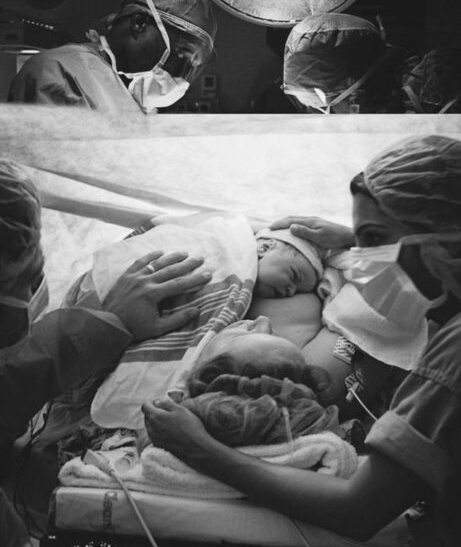Can Drinking Hot Water Shrink Fibroids?


Fibroids are non-cancerous growths that develop in the uterus. They are relatively common, with many women experiencing them at some point in their lives. As a result, various remedies and natural treatments have emerged as potential solutions for managing fibroids.
One such claim that has gained attention is whether drinking hot water can shrink fibroids. In this blog post, we will explore the topic and provide an informed perspective on this popular belief.
Understanding Fibroids: What are Fibroids?
Before delving into the claim, it’s important to understand what fibroids are and how they develop. Fibroids are muscular tumors that grow in the wall of the uterus. They can vary in size and number, often causing symptoms such as heavy menstrual bleeding, pelvic pain, and frequent urination.
While the exact cause of fibroids is unknown, hormonal imbalances, genetic factors, and estrogen dominance are believed to play a role in their development.


READ MORE: Caramel Toned Skin, Properties and Maintenance
What are the causes of fibroids?
The exact causes of fibroids are not fully understood, but several factors are believed to contribute to their development. Here are some of the commonly recognized factors that may play a role:
1. Hormonal Imbalance
Estrogen and progesterone, two hormones involved in the menstrual cycle, are thought to influence the growth of fibroids. Fibroids tend to grow and become symptomatic during the reproductive years when estrogen and progesterone levels are higher. Fluctuations in these hormones, such as during pregnancy or menopause, can also impact fibroid growth.
2. Genetic Factors
There may be a genetic predisposition to developing fibroids. If your mother, sister, or other close female relatives have had fibroids, you may have an increased risk of developing them as well. Certain genetic alterations and mutations may contribute to the formation of fibroids.
3. Family History
A family history of fibroids increases the likelihood of developing them. Research suggests that certain genetic and environmental factors passed down through families may contribute to fibroid development.
READ MORE: Mystic Monk Scandal: Unveiling dark side of Carmelite Monks’ coffee business
4. Race and Ethnicity
Studies have shown that certain racial and ethnic groups, particularly women of African descent, have a higher prevalence of fibroids. These variations in occurrence suggest a possible genetic or environmental component.
5. Growth Factors
Insulin-like growth factor (IGF), transforming growth factor-beta (TGF-beta), and other growth factors may influence fibroid development. These substances regulate cell growth and proliferation and may contribute to the growth of fibroid tissue.
6. Obesity
Being overweight or obese has been associated with an increased risk of developing fibroids. The exact mechanism is unclear, but it is believed that excess body fat may result in increased estrogen production, which can promote fibroid growth.
7. Age and Hormonal Changes
Fibroids typically develop during a woman’s reproductive years, between the ages of 30 and 50. They tend to shrink after menopause when hormone levels decline. This suggests that hormonal fluctuations throughout a woman’s life, including puberty, pregnancy, and perimenopause, may influence fibroid growth.
READ MORE: List of diseases cured by Aloe Vera that will leave you astounded
It’s important to note that while these factors are commonly associated with fibroids, the development of fibroids can vary from person to person. Many women with one or more of these factors may never develop fibroids, while others without apparent risk factors may develop them.
The specific cause of fibroids is likely to be multifactorial and influenced by a combination of genetic, hormonal, and environmental factors.
The Myth of Drinking Hot Water
The notion that drinking hot water can shrink fibroids stems from the belief that heat can dissolve or reduce the size of fibroid tumors. However, it’s crucial to note that there is no scientific evidence to support this claim. Fibroids are solid masses of tissue, and simply consuming hot water cannot make them shrink or disappear.
The Role of Hydration
While drinking hot water may not directly affect fibroids, maintaining proper hydration is essential for overall health. Drinking an adequate amount of water can help flush out toxins from the body, improve digestion, and support overall well-being. Staying hydrated is particularly important for managing various health conditions, including fibroids, as it promotes optimal bodily functions.
Alternative Approaches to Managing Fibroids
While there is no magic cure for fibroids, several strategies can help manage the symptoms and slow their growth. Here are a few approaches that have shown some promise:
- Medical Treatment: Depending on the severity of symptoms, healthcare providers may recommend medications to regulate hormonal imbalances, reduce bleeding, or alleviate pain associated with fibroids. In severe cases, surgical interventions like myomectomy or hysterectomy may be considered.
- Natural Remedies: Some individuals find relief from fibroid symptoms by adopting natural remedies, including herbal supplements, dietary changes, and stress reduction techniques. These approaches can help alleviate symptoms, although they may not directly shrink the fibroids themselves.
- Lifestyle Modifications: Maintaining a healthy lifestyle, including regular exercise, a balanced diet, and stress management, can contribute to overall well-being and potentially improve symptoms associated with fibroids.
What to drink to shrink fibroids?
While there is no specific beverage that can directly shrink fibroids, maintaining a healthy and balanced diet is important for overall well-being and may help manage fibroid symptoms. Here are some dietary recommendations that may be beneficial:
1. Water
Staying hydrated by drinking an adequate amount of water is essential for overall health. It can help flush out toxins from the body, support digestion, and promote optimal bodily functions. Aim to drink at least eight glasses of water per day.
2. Green Tea
Green tea is rich in antioxidants and has anti-inflammatory properties. Some studies suggest that green tea may have a positive impact on fibroids by inhibiting their growth. However, more research is needed to establish a definitive link.
3. Herbal Teas
Certain herbal teas, such as chamomile, ginger, and dandelion, have anti-inflammatory properties and may help alleviate symptoms associated with fibroids. However, it’s important to consult with a healthcare professional or herbalist before using herbal remedies, as they may interact with medications or have contraindications.
4. Vegetable Juices
Fresh vegetable juices, particularly those containing cruciferous vegetables like broccoli, kale, and cabbage, are rich in vitamins, minerals, and antioxidants. These nutrients support overall health and may have a positive impact on fibroid management. However, it’s important to consume juices in moderation and as part of a balanced diet.
5. Water with Lemon
Drinking warm water with lemon in the morning is a common practice for detoxification and supporting digestion. While it may not directly shrink fibroids, it can contribute to overall health and well-being.
6. Limit Caffeine and Alcohol
Caffeine and alcohol consumption should be moderated, as they can affect hormone levels and potentially exacerbate fibroid symptoms. Opt for herbal teas or water as alternatives.
It’s important to note that dietary changes alone may not shrink fibroids. If you suspect you have fibroids or are experiencing symptoms, it is advisable to consult with a healthcare professional for an accurate diagnosis and personalized treatment plan.
They can provide appropriate medical advice and discuss potential treatment options based on your specific circumstances.
How can Hot Water Help with Fibroid?
So, can drinking hot water shrink fibroids? There haven’t been any scientific studies to prove it, but many women say it does help.
Here’s how it works according to stipulations: the hot water helps to open up the blood vessels and flush out the toxins. This, in turn, helps to reduce the size of the fibroids. And it’s not just drinking hot water that helps; taking a hot bath or using a hot compress can also make a difference.
Some women find that drinking lots of fluids also helps, while others find that cutting back on caffeine and alcohol makes a difference. And finally, some women find that they get relief from taking herbal supplements or prescription medication.
Conclusion
While the idea of drinking hot water to shrink fibroids may sound appealing, it is unfortunately a myth lacking scientific evidence. Fibroids are complex growths that require proper medical attention for diagnosis and management.
It’s essential to consult with a healthcare professional who can provide an accurate diagnosis and recommend appropriate treatment options based on individual circumstances.
Instead of relying solely on unproven remedies, individuals dealing with fibroids should focus on a comprehensive approach that includes medical guidance, healthy lifestyle choices, and potential natural remedies to manage symptoms and promote overall well-being.
Remember, each person’s experience with fibroids may vary, so it is crucial to seek personalized advice from a healthcare professional for an informed and appropriate management plan.
Disclaimer: This blog post is for informational purposes only and should not be considered medical advice. Always consult with a healthcare professional for accurate diagnosis and personalized treatment recommendations.



